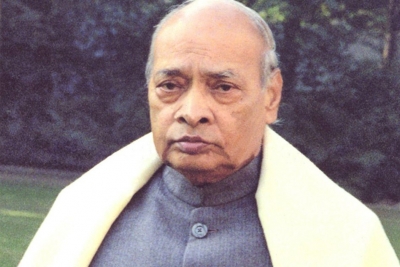
Pamulaparthi Venkata Narasimha Rao (28 June 1921 – 23 December 2004) was an Indian lawyer and politician who served as the 9th Prime Minister of India from 1991 to 1996. He is often referred to as the “Father of Indian Economic Reforms”. Future prime ministers Atal Bihari Vajpayee and Manmohan Singh continued the economic reform policies pioneered by Rao’s government. He employed Dr. Manmohan Singh as his Finance Minister to embark on historic economic transition.
Former Indian Foreign Minister Inder Kumar Gujral says Mr. Rao will be remembered as the father of India’s economic reforms. He says when Mr. Rao became the prime minister the Indian economy was in bad shape. It was very difficult at the time to introduce new ideas, new philosophies, and to convince people to support him on something untested. The Indian public and politicians at the time did not believe that they could try something new and get out of the mess but Mr. Rao persisted and persevered. Mr. Gujral adds Mr. Rao will always be remembered for pioneering far-reaching economic changes in India, which took India on a new economic path.
Mr. Rao is credited with launching free market reforms that opened up India’s stagnant, socialist economy. The shift turned the bankrupt nation into a regional economic powerhouse. According to government figures, India’s economy has posted an average growth rate of six percent since 1990 and poverty rates have fallen by 10 percent.
Prime Minister Rao was the first Indian leader outside the Nehru-Gandhi dynasty to complete a full five-year term. However, his term was not free from controversy. In 1992 Hindu zealots demolished the 500-year-old Babri mosque in the northern Indian city of Ayodhya. The destruction of the mosque triggered widespread Hindu-Muslim violence that claimed thousands of lives.
Picture Credit : Google

